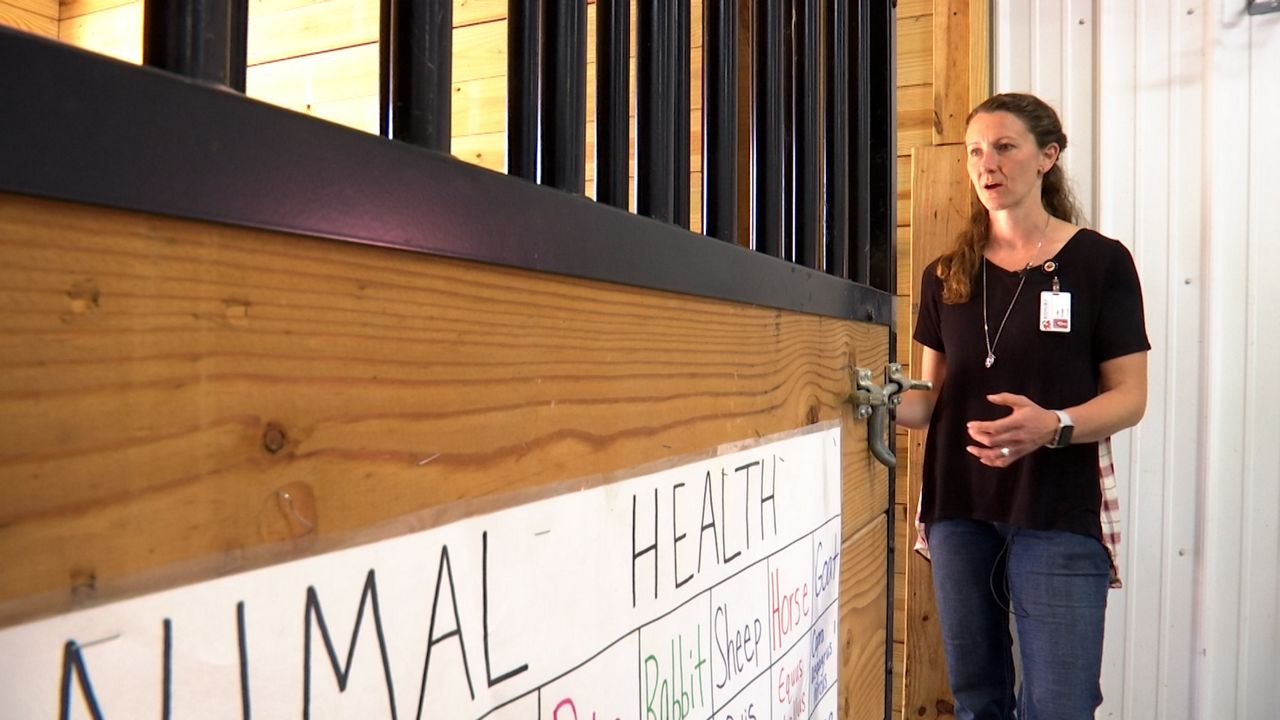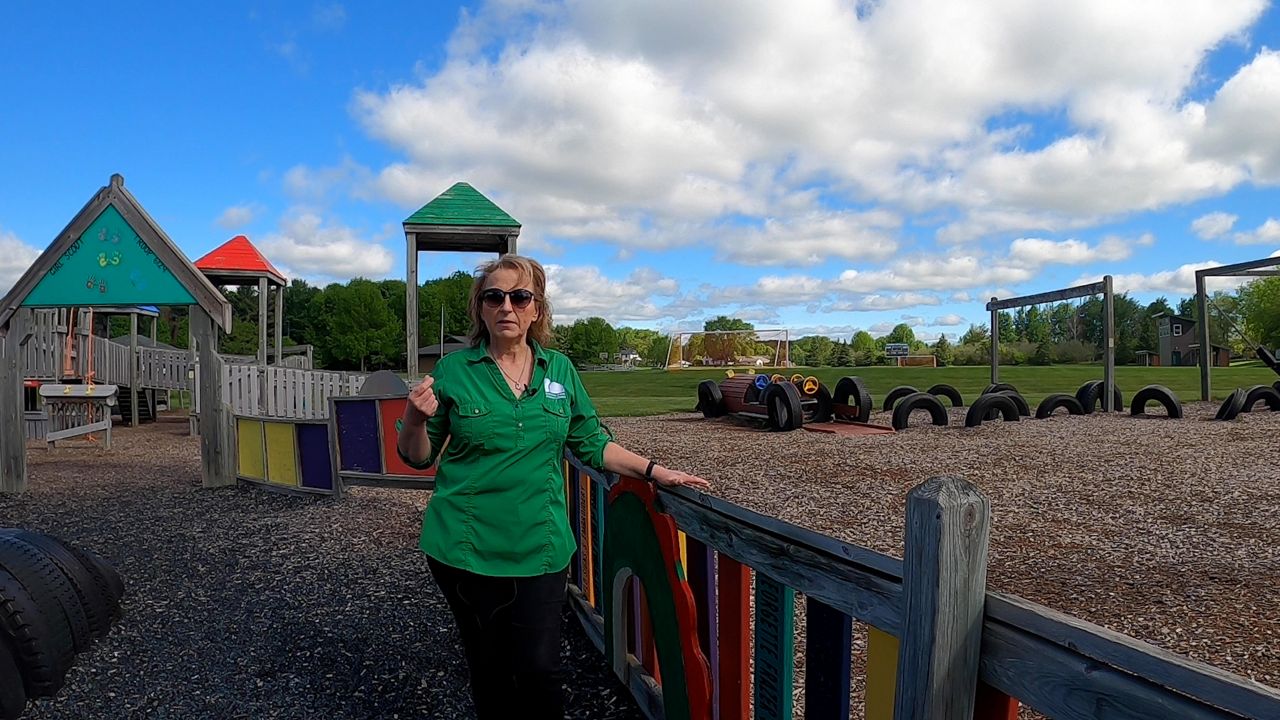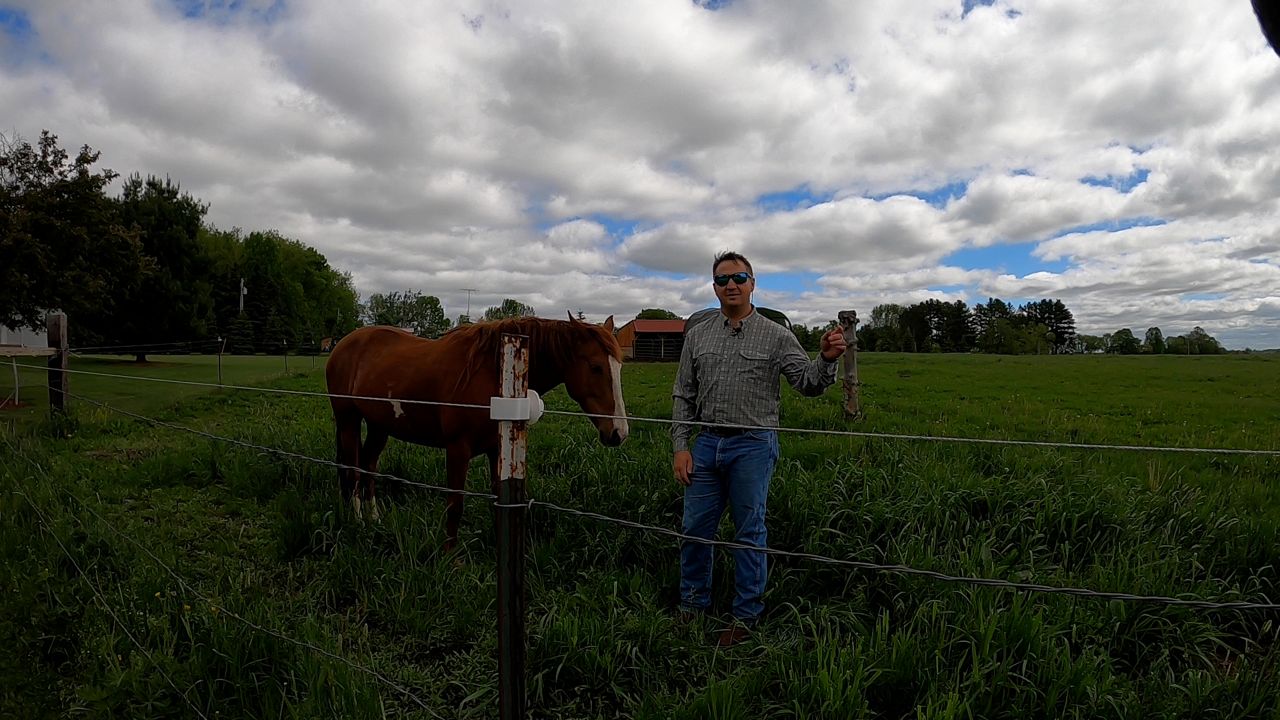What You Need To Know
Research shows growing up on a farm results in lower rates of eczema, asthma, some allergies
More youth die working in agriculture than all other industries combined
About every three days a child dies on a farm in the U.S., every day about 33 children are seriously injured
Research shows growing up on a farm results in lower rates of eczema, asthma, some allergies
More youth die working in agriculture than all other industries combined
About every three days a child dies on a farm in the U.S., every day about 33 children are seriously injured
“We have very strict rules here at school,” Kopp said. ”I usually try and give them some gruesome stories because they have to hear some of these bad things to hit home for them.”
More youth die working in agriculture than all other industries combined, part of the reason why safety is such a high priority in Kopp's classes.

“You're teaching what they should be doing, so if you don't teach them properly they're going to grow up thinking that's okay, then teach the next generation,” Kopp said.
According to data from the National Children's Center for Rural and Agricultural Health and Safety (NCCRAHS), about every three days in the U.S. A child dies on a farm. Every day about 33 children are seriously injured. The majority of those injuries are to young non-working children.
“So when you combine this hazardous worksite with the presence of young children it does very much allow for enabling these kids to be injured and even killed in this worksite,” said Marsha Salzwedel, an agriculture youth safety specialist for the NCCRAHS.
Salzwedel specializes in educating rural families on safe play spaces that farms can incorporate, which often features fenced-in play areas that keep young children far away from machinery and large animals.

“By not taking the child into the farm worksite, by not taking them onto this equipment, we can prevent a vast majority of those injuries and those fatalities,” Salzwedel said.
Salzwedel said in more than a decade working in her role she's seen countless tragedies, including toddlers and young children dying from drowning, tractors or other equipment.
“It almost feels like you're reading the same incident over and over again, and it's just heartbreaking after a while,” Salzwedel said.
Those stories weigh heavy for farm parents of young children like Casper Bendixen.
“The idea of fatalities and injuries as a parent really wake you up,” Bendixen said. “I didn't know how dangerous it was until I became exposed to the work of agriculture health and safety.”
Bendixen is the director of the National Farm Medicine Center. The center not only works to prevent injury, but is researching benefits of growing up on a farm.
“There's a paradox,” Bendixen said. “There's this problem where we want children to have the benefits of farm exposures like livestock to enhance their immune system, and work ethic, and getting to know the food systems, but we need to avoid the serious injury causing things like drowning and tractors and ATVs.”

The Center's research has involved following children in both farm settings and rural non-farm settings from pregnancy to seven and eight years old.
“We have already observed that the number of farm animals that a child is exposed to in utero and in the first two years of life is correlated with a reduction of atopic dermatitis or eczema,” said Kate Barnes, a researcher with the Farm Medicine Center working on the project.
Their research showed microscopic material on the farm results in kids having fewer allergies and lower rates of asthma.
“Those microbes, while generally harmless in that form, essentially train that immune system to fight off some of the more advanced and threatening viruses and bacteria that can make us sick,” Barnes said.
Both rural farm and non-farm kids have lower rates of asthma than kids in an urban setting.
Kopp, a mother of three young children on a farm, loves hearing about the benefits her kids may have.
“Overall, I'm going to be really happy that they're going to be more immune to stuff because they've been exposed at a young age, they can build up those antibodies throughout their whole life,” Kopp said.
The Farm Medicine Center provides free materials and consulting on creating a safe farm environment for children.
“You don't have the time and you don't have the money to not address this,” Salzwedel said. “It's going to save you so much in the long run, not just in money, not just in time, but also in heartache overall.”
All of those benefits of growing up on a farm go away in an accident.










